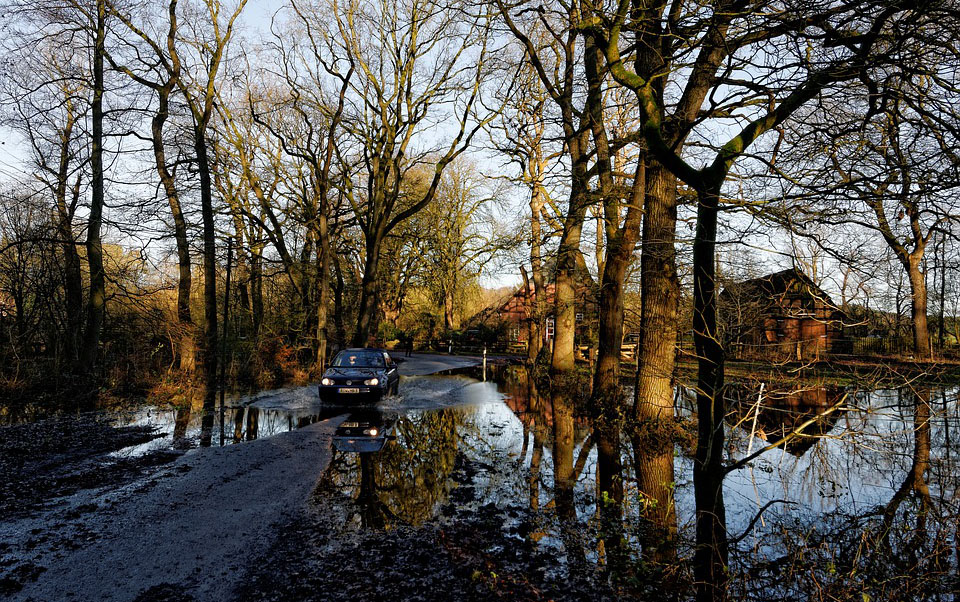Congress has once again extended the current mandate for the National Flood Insurance Program (NFIP). If you have used the NFIP in the past to deliver flood insurance to clients, you know all too well that trying to simplify the complexities of flood insurance in the midst of regulatory changes and extreme weather events is an important yet arduous undertaking.
The industry is filled with constant change, and people need alternatives. This series of guiding questions can help facilitate conversations with your clients so you can work together to thoughtfully explore all options for protecting their property and valued possessions.
7 Guiding Flood Insurance Questions
Does your client need specialized flood insurance coverage?
Consider flood insurance coverage in terms of the specifics of the property and the property owner. Is your client a landlord? Is your client on a fixed income? Is this person holding properties for income-generating purposes? By understanding the needs of your clients, you can more effectively navigate the suite of flood insurance options available today.
Private flood insurance enables property owners to supplement the NFIP product today, providing coverage that homeowners expect from their homeowners policies for exposures such as outdoor property, detached structures, swimming pools and basements.
See also: Future of Flood Insurance
Does your client have a finished basement or pool?
The NFIP does not cover personal property in basements, so displaced homeowners or homeowners with built-out basements are responsible for these bills. If a storm surge dumps a ton of sand into your client’s pool, is your client prepared to shoulder the costs of the resulting clean-up? By understanding your client’s lifestyle and property usage, you can deliver meaningful solutions. Private options can help.
Does your client’s property value exceed $250,000?
The value of custom-built homes continues to increase, with replacement costs rising well above $250,000, the current limit on government-issued coverage. Now, owners of residential homes have options with higher coverage limits at affordable rates through private flood insurance programs.
Would your client need assistance for additional living expenses if they experience flood damage?
When weighing coverage options remember that the NFIP does not cover additional living expenses. With a private flood policy, your client can opt to add additional living expense coverage. This valuable coverage helps homeowners that have been displaced as a result of a flood by covering the costs of shelter and meals.
Are your client’s personal belongings valued at more than $100,000?
Consider your client’s property holdings beyond the physical structures she owns. For example, if your client is a landlord or holding income-generating properties, she typically doesn’t need contents coverage. However, some clients may need more coverage than what is available from the NFIP to protect their personal treasures.
Would your clients prefer an easy application process without the hassle of submitting photographs or an elevation certificate?
Speed of delivery and streamlined processes of today’s private flood insurance options are increasingly attractive to clients. Plus, property owners can often obtain a quote without an elevation certificate and without providing property photographs.
See also: Time to Mandate Flood Insurance?
Would you like to save your clients money by avoiding federal surcharges or reserve fund assessments?
Private products are not subject to federal surcharges or reserve fund assessments and may be less expensive to purchase than NFIP flood insurance.
With the NFIP reauthorization debate continuing, Congress struggles to make flood insurance affordable and improve claims standards. Discussions continue around the development and delivery of dependable, disciplined, reliable private insurance to help more people protect their financial livelihood.
Presenting private flood insurance options not only helps your clients make more informed decisions, it enhances the value you bring to your relationship as you work together to help them protect what matters most – their families, homes and treasured possessions.
Today, private flood insurance is available in every state, through multiple channels and multiple locations. Companies have the capacity to step in and offer a suite of comprehensive private options for their clients. Private flood insurance is embedded into many brand name lenders that facilitate a loan closing and help Americans get into their dream home, without interruptions.


